Yiddish Heroism, Hebrew Tears
I can’t recall the last time I saw a documentary with as many people crying onscreen as there are in Black Honey, a new documentary on the life and work of the great Yiddish poet Avraham Sutzkever. I suppose this shouldn’t be surprising for a film about a Holocaust survivor, except that none of the crying is about the Holocaust. It’s about what came after, the compromises and concessions that remain unspoken even in this wonderfully wordy film. And that’s what makes Black Honey so phenomenally powerful and, perhaps unintentionally, uncomfortable.
Sutzkever’s life was more action-packed than any Marvel superhero’s—and as stark, gory, and unsubtle as a comic book in its battle between good and evil. That’s even before you get to the epic power of his work—and for Sutzkever, life and work were not even slightly separate, since his was a life not merely shaped by poetry in a metaphorical sense but literally saved by it, when a poem of his produced an airplane. So it is surely too much to ask this film to be more open about the fact that it is really about something else, specifically the something that its talking heads keep crying about. It’s too much because until now we didn’t even have the basic documentary narrative, the superhero recap of his life’s work. But Black Honey is even more than an account of the poet’s life, and anyone who cares about literature or Jewish culture needs to see it.
Avraham (“Avrom” in Yiddish; “Abrashe” to his family and friends) Sutzkever was born in Smorgon, Lithuania, in 1913. When he was two, his family was evacuated from the First World War’s eastern front to the remote Siberian town of Omsk, where he lived until the age of seven and where his father died early, at the age of 30. Sutzkever later published a mind-blowing cycle of poems titled Siberia, in which he imagined his childhood landscape as a fantastical wonderland infused with his father’s memory; the poems gleam with an awe that’s only enhanced by grief. (The work was illustrated by Marc Chagall.) Sutzkever’s family moved from Omsk to Vilna, the “Jerusalem of Lithuania,” where he met his wife Freydke when they were both 12, and where his poetry rocketed him to international fame in his twenties.
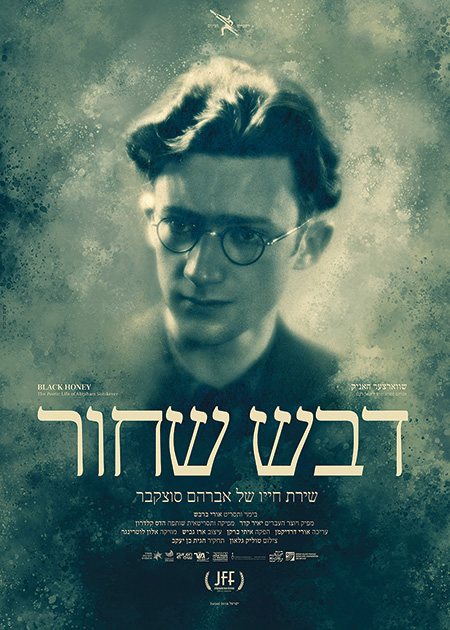
In 1941 the Nazis conquered Vilna. They murdered more than 75,000 Jews in a forest outside the city and warehoused the remaining 20,000 in a ghetto of eight blocks. In the ghetto, the Nazis outlawed Jewish births; the Sutzkevers’ baby boy, born after this Pharaonic edict, was murdered in the ghetto hospital as Sutzkever watched. With horror compounding horror, Sutzkever obsessively wrote poems that would become central to the Vilna Ghetto’s extraordinary culture.
These poems don’t merely collect and record pain. They reveal irrepressible beauty and create an unbroken chain through past Jewish traumas. Through partisan organizations, they were read and recited as far away as Moscow. One unforgettable poem, “Moses,” describes a woman abandoning a baby in Vilna’s icy river:
How far is the Viliya [river] from the Nile?
Same water flows, other days beget.
The horror of eternity makes it a habit:
Return again, so man should not forget.
In another, the poet warms his hands over fresh manure and notes, “The warm breath of a pile of dung / May become a poem, a thing of beauty.” In “The Lead Plates of the Rom Printers,” Sutzkever describes young fighters melting down the plates used to print Talmuds into bullets. A Hanukkah anthem, it announces: “We poured out the letters—in lead lines engraved. / Thus did, in the Temple, our forefathers wield / The golden menorahs, poured in oil that was saved.” (I quote here from Benjamin Harshav’s translations, whose slight clunkiness results from trying to maintain the poems’ formal properties. The film’s English translations of Sutzkever’s poetry ignore rhyme and meter completely, while its Hebrew translations attempt to preserve them—a choice that suggests what’s really at stake in this film, as we will soon explore.)
In 1942, the Nazis drafted a squad of Jewish intellectuals, including Sutzkever, to loot Vilna’s cultural treasures, including those housed at YIVO, the city’s renowned archive and research center for Yiddish culture, for a future Nazi institute for the study of “Judaism without Jews.” They were to select important material so that the rest could be pulped. Dubbing themselves the “Paper Brigade,” Sutzkever and his fellow humanists outwitted the Nazis by using the opportunity (and risking their lives) to rescue and hide many of these treasures; a trove of materials that belonged to YIVO has been rediscovered only in the last few years.
Smuggling books led to smuggling weapons for Vilna’s partisans, providing Sutzkever with links beyond the ghetto’s walls. In late 1943, the Sutzkevers escaped the ghetto through the sewers, traveling hundreds of miles on foot through swamps. And then came the moment when poetry saved their lives. The members of the Jewish Antifascist Committee in Moscow were astounded by Sutzkever’s epic poem “Kol Nidre,” with its eyewitness evidence of the genocide in progress, and they succeeded in getting the Kremlin to send a plane to rescue the poet and his wife. The first plane they sent was shot down by the Germans and crashed on a frozen lake. To reach the second plane, Sutzkever and Freydke had to walk through an area full of landmines. They walked to the rhythm of his poems. “Sometimes I walked in anapests, and sometimes in antibrachs,” he told the Israeli scholar Dory Manor.
After the war, Sutzkever was called to testify at Nuremberg. Then he and his wife made their last great escape, this time to prestate Israel—where Sutzkever almost singlehandedly maintained the country’s Yiddish literary culture until his death in 2010, at the age of 96.
This is the story of an actual superhero, a living embodiment of every platitude about fighting evil and never giving up. The platitude about the transcendent power of poetic creativity is a slightly harder sell, even if it did actually save the Sutzkevers’ lives.
The film’s literary scholars make much of this idea of poetry saving Sutzkever’s life, as if it were inevitable, which, to be fair, is quite close to Sutzkever’s own understanding of his creativity. “It was as clear as day to Sutzkever that he wasn’t going to die,” Manor claims. “He was absolutely convinced that unlike other people he wouldn’t die because he was gifted with something miraculous, prophetic, divine—his poetry.” The eminent Israeli literary critic Dan Miron seems to understand Sutzkever as a prophet for the god of art. In his onscreen analysis, he describes him almost as an heir to the Hebrew poet Shaul Tchernichovsky, who wrote a scandalous ode to the Greek god Apollo out of his desire to give Jewish creativity the holy status that art had in other languages. Miron sees evidence of this attitude in Sutzkever’s heart-stopping ballad “Teacher Mira,” about a ghetto teacher (based on an actual person) whose total devotion to her young students never wavers, even as the number of her students dwindles, in each of the ballad’s stanzas, from 130 to seven. Miron points to a line describing Teacher Mira carrying “a child in her arms, a golden lyre.” “He meant,” Miron declares, imagining Sutzkever’s thought process, “that ‘I am walking this death march with the golden lyre Apollo gave me’—the lyre of classical poetry, in every sense of the word.”
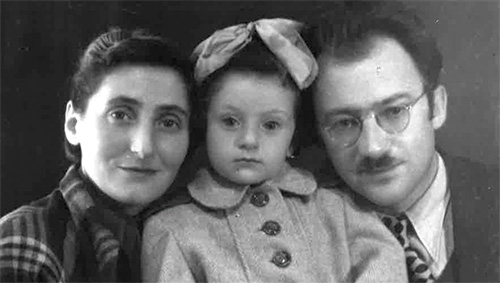
I understood that verse differently, connecting it to Sutzkever’s poem “On My Thirtieth Birthday,” a lament after his baby’s murder that recalls his father playing Hasidic melodies on his violin before his death at age 30. “And like my father, / I have a red violin,” Sutzkever wrote. “See, I tear my veins / and play on them my melody!” This poem is not quoted in the film. But to me, the images of musical instruments in these two poems, both about the murder of children, evoke the limitations of art in the face of unimaginable grief. I don’t insist upon this interpretation, but despite the scholars’ hard sell on the power of creativity, the Apollo-worship of art as sacred doesn’t come off well in this film.
There’s one other moment in Black Honey where a musical instrument comes up. In that memorable scene, we learn about Bruno Kittel, an SS officer who supervised the Vilna Ghetto’s liquidation. Talented in both music and murder, Kittel set up a piano at Vilna’s deportation point, where he played concertos as Jews boarded trains to extermination camps. During one mass deportation, a teenage boy approached Kittel as he played, begging for his life. Kittel took out his pistol and shot the boy dead with his right hand, while continuing to play the piano with his left.
Amazingly, moments like this—and there are many—don’t cause anyone to cry in this film. That fact alone reveals the deep resignation to murder and martyrdom buried in the heart of Jewish culture, even after 70 years of Israel’s independence. The moments of tears are quite different and worthy of examination. Each is a freeze-frame from the farthest border of translation, a border whose crossing is full of unanticipated pain.
The least surprising tears come from Sutzkever’s Israeli granddaughter Hadas Calderon, a professional actor (and one of the film’s producers) whose stage presence is palpable even in the film’s talking-head format. Sutzkever never returned to Germany after testifying at Nuremberg, refusing all invitations. Calderon, born into a different world, received her grandfather’s permission in 2010 to perform a piece about his life and work in Heidelberg with an Israeli-German collaborative theater group. “I had a very clear goal,” Calderon explains: “to tell the story of my family.” The morning of the premiere, she learned of her grandfather’s death. The performance went on as a kind of living eulogy. At the curtain call, the lead German actor went out and stopped the audience’s applause to announce that Sutzkever had died. “He said this in German,” Calderon recalls. She had suppressed her emotions during the performance, she says, “but when he said ‘Avraham Sutzkever died,’ in German, I fell to pieces. . . . and when the German audience applauded him, applauded Avraham Sutzkever . . .” Here Calderon falls to pieces once again, onscreen. It is hard to miss that she is not actually crying over her grandfather’s death but over something far more intense.
The more unexpected tears come from the Israeli Yiddish scholar Avraham Novershtern, the head of Hebrew University’s Yiddish department, who has been instrumental in the development of Yiddish scholarship in Israel. Novershtern describes how Sutzkever established Di goldene keyt (the Golden Chain, a phrase denoting the Yiddish literary tradition), the Yiddish literary journal whose endurance and high caliber made it the central address for Yiddish culture worldwide in the years after Israel’s independence. In 1948, Sutzkever sought funding for the journal from the Histadrut, the central labor union that at the time held the country’s greatest political clout. Novershtern recounts how, in the midst of Israel’s war for independence, Sutzkever came to petition Yosef Sprinzak, the head of the Histadrut, about supporting his Yiddish journal—without realizing that Sprinzak’s son had fallen in battle only days before. It is at this point that Novershtern cries onscreen.
I don’t pretend to know exactly why this story was so resonant for Novershtern, though in a country where nearly everyone’s children serve in the military, one can guess. But there is a deeper emotional significance to this incident in Sutzkever’s life, and in the life of the people of Israel, that is in perfect keeping with Novershtern’s emotions. At that moment Sutzkever and Sprinzak had something profound in common: They were both fathers of martyrs, both struggling to build something that could somehow redeem, however slightly, those horrific losses. Sprinzak’s boy died fighting to save Sutzkever’s daughters, and he succeeded in that sense he was not merely a martyr but a superhero. Sutzkever’s boy could only become a poem. His father was fighting for that poem. Sprinzak said yes.
The third moment of tears in the film comes from the Harvard professor emerita Ruth R. Wisse, though hers are suppressed enough to be plausibly deniable. She describes an encounter with Sutzkever at a conference when she was a young woman, honored to have the opportunity for casual conversation with the literary giant. All went well, she recalls, until she asked him an innocent question about a detail in a story he was recounting from the war. Sutzkever roared at her, “Vos veystu fun di tsapeldike rukzek?” “What do you know of the quivering knapsacks?” Wisse then explains what he meant: Jewish mothers in the ghetto, left with no options, smuggled their living infants out of their homes in order to abandon them to die. Barely suppressing her own tears, she describes how she instantly saw herself through the poet-survivor’s eyes: “He totally lost confidence in me. Suddenly he saw that this girl, she understands nothing . . . and indeed I did not know, and he was right.” To me, this moment haunts the entire film and reveals its purpose.
What do we know, indeed, of the tsapeldike rukzek? Thankfully, nothing—and one of the foundational purposes of the state of Israel is the assurance that this knowledge can be safely forgotten. While watching this scene, I was reminded of a small moment in my own life. I was in Israel for a work trip a few years after the Second Intifada, and at one point I passed through a checkpoint in a taxi. It was a nothing of a stop: Soldiers asked for ID, checked the trunk, and sent us on our way. But as these strangers checked each car, it occurred to me that this entire apparatus existed solely for the purpose of keeping me alive. Despite the soldiers’ youth, I felt weirdly mothered, as if I were a child and someone was going to elaborate lengths and taking risks whose complexity I couldn’t begin to understand, just to protect me. I thought of my own country, where daily life is well equipped with first responders but not especially with first preventers, and where the fact that people like me have been consistent targets of persecution for several millennia is utterly irrelevant to how anyone regards my safety. This situation can only be considered a blessing. But in the taxi at that moment, I was struck by the sudden thought that for all its devotion to keeping me free, my native country does not place any particular priority on keeping me alive. I could, of course, summon all kinds of arguments against this feeling. But it was a feeling, not an argument, and I found myself crying in the back of the cab, my tears as irrational and uncomfortable as those of all the teary people in this film.
These tears returned to me as I watched Wisse hold back hers, reaching the edge of what she and I are blessed not to know. One of Sutzkever’s many masterpieces is a series of prose poems entitled “Green Aquarium,” in which the poet imagines his murdered loved ones trapped inside an aquarium representing memory. He can see them vividly right before his eyes, but if he smashes the glass, those he loved would be lost forever; their memory can only endure if intimacy is impossible. This experience of an inaccessible past, which was entirely personal for survivors, extends in a collective sense to everyone who reads and studies Yiddish literature now. We can only look through the glass.
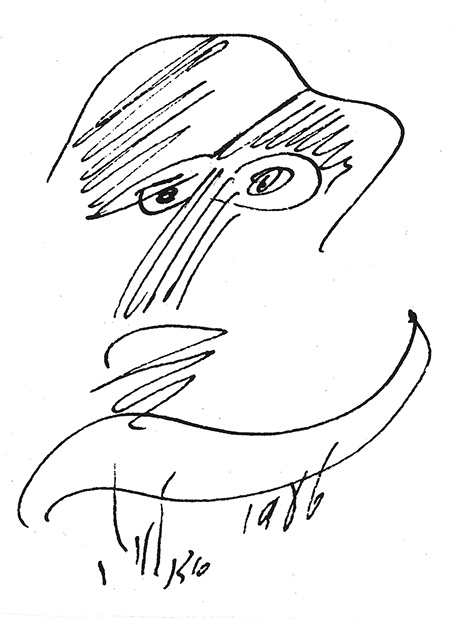
This uncomfortable reality is part of the structure of the film itself. Among the many people interviewed in the film, only one—Yitskhok Niborski of Bibliothèque Medem, a Yiddish archive in Paris—responds in Yiddish. With the exception of English spoken by Wisse, a few recordings of Sutzkever reading his own work, and Niborski’s interviews and read-alouds, the bulk of the film, including all the other interviews and most of Sutzkever’s poetry, is in Hebrew.
It is not at all surprising that people in the film chose to speak the language they use daily. In fact, it is a relief to observe scholars deeply devoted to Yiddish literature dispensing with the desperate denial of previous generations of passionate Yiddishists, who often insisted on using Yiddish at every opportunity. Yet it was also alarming to hear Sutzkever’s poetry not merely rendered into Hebrew but to hear those Hebrew lyrics read aloud by disembodied voices as though they were the originals, the Yiddish abandoned entirely—especially when those same Hebrew verses were provided simultaneously onscreen, so a reading of the original Yiddish would not have obscured anyone’s understanding. A translation is of course necessary and in no way surprising. What’s surprising is a translation provided as though it were the original. That overriding translation into Hebrew is exactly what this film ultimately achieves, and it is the film’s real subject and purpose.
Of course, this is exactly the opposite of what Sutzkever himself saw as his own subject and purpose. His devotion to the Yiddish language was total; after the Holocaust he saw the language itself as the most powerful memorial. When he was called to testify at the Nuremberg trials mere months after the war’s end, he planned to give his testimony in Yiddish: “I want to speak the language of the people the defendants tried with all their might to destroy. Thus, our language will be heard, until [Nazi defendant] Alfred Rosenberg explodes.” His Soviet rescuers had other ideas. It was more useful, they insisted, to have the Soviet people hear his testimony in Russian. In one of the film’s many amazing moments, we get to see archival footage of Sutzkever’s Russian-language testimony at Nuremberg—and we see him refuse to sit down before the Nazi henchmen, even when the presiding judge asks him to take his seat.
The film presents Sutzkever’s Russian-language testimony as though it were a logistical snafu, rather than part of the long Soviet erasure of Jewish culture that would continue for nearly 50 years. Just a few years later, Stalin culminated his purge of Jewish culture in the USSR with the executions of famed Yiddish writers and poets, whose ranks would surely have included Sutzkever himself had he not continued on to Tel Aviv. Sutzkever was an ace at dodging bullets.
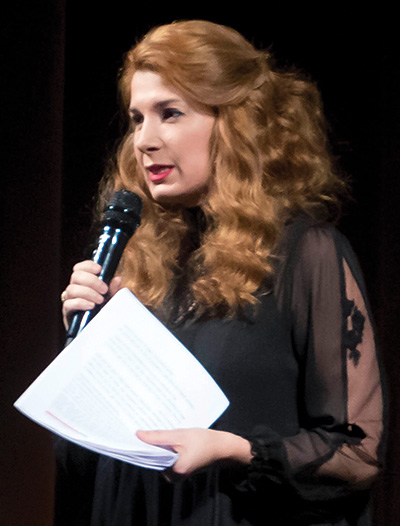
The same cannot be said of the language that the poet came to see as a memorial. Sutzkever’s career once he arrived in Israel was a long one: He lived to 96 and continued publishing Yiddish poetry for most of those years. Miron makes an impassioned plea for Sutzkever to be understood as an Israeli poet, pointing out that the greatest poem on Israel’s War for Independence is a Yiddish work by Sutzkever, Gaystike erd. None of this quite matters, though. The film describes his Israeli funeral in 2010, attended by only a few dozen people. Miron recalls conversations with Sutzkever during which the poet repeatedly asked, “Will people remember me?” Miron promised him: “As long as someone remains in this world who can taste a Yiddish word, you will be remembered.” But this film, in its entirety, is aiming for something different—and dare I say, something better.
The Zionist concept of shlilat hagalut (negation of the exile), which steamrolled Jews from diverse communities into a uniform Israeli identity with a single language, was a psychological necessity for a young state. Today, Israeli society has the cultural confidence to rediscover aspects of diaspora Jewish heritage that were previously taboo. The film dutifully reports on the Yishuv’s repression of Yiddish, but nearly all the people who fought that culture war are dead now, leaving room for their descendants to develop a different approach to the Yiddish literary legacy. (The fact that there are currently tens of thousands of native Yiddish speakers in Israel—a population that is young and growing—is ignored completely in this film, since they are haredi and therefore presumed to be allergic to non-haredi people and literature. I question that presumption, if only because no one seems willing or able to test it.) That legacy, as the film fails to actually state out loud, will endure in the future—in Hebrew.
Jewish tradition has long sanctified the act of translation of Hebrew texts into other languages. To the mythologies about Targum Onkelos and the Septuagint, we might add a modern footnote that takes translation in the opposite direction. When future Nobel laureate Saul Bellow first met the future Hebrew Nobel laureate S. Y. Agnon in 1961, Agnon urged him to have his novels translated into Hebrew, because “they would only survive in the holy tongue.” When Bellow offered the counterexample of the great 19th-century German Jewish poet Heinrich Heine, Agnon calmly replied, “We have him beautifully translated into Hebrew. He is safe.”
Agnon was making a point about non-Jewish languages, but this film makes clear that the same point might well apply to Yiddish literature too. Black Honey, in its grand Hebrew recitations of Sutzkever’s Yiddish lyrics, as well as in its powerful introduction to the poet for a mainly Hebrew-speaking audience, is itself an enactment of exactly that process. By bringing this master’s work to the wider world in Hebrew, it has reinvented and revived Sutzkever as the Israeli poet he tragically never quite became in life.
As a lover of Sutzkever’s work, I’m grateful, to the point of tears, to know that he is safe.
Comments
You must log in to comment Log In
Suggested Reading
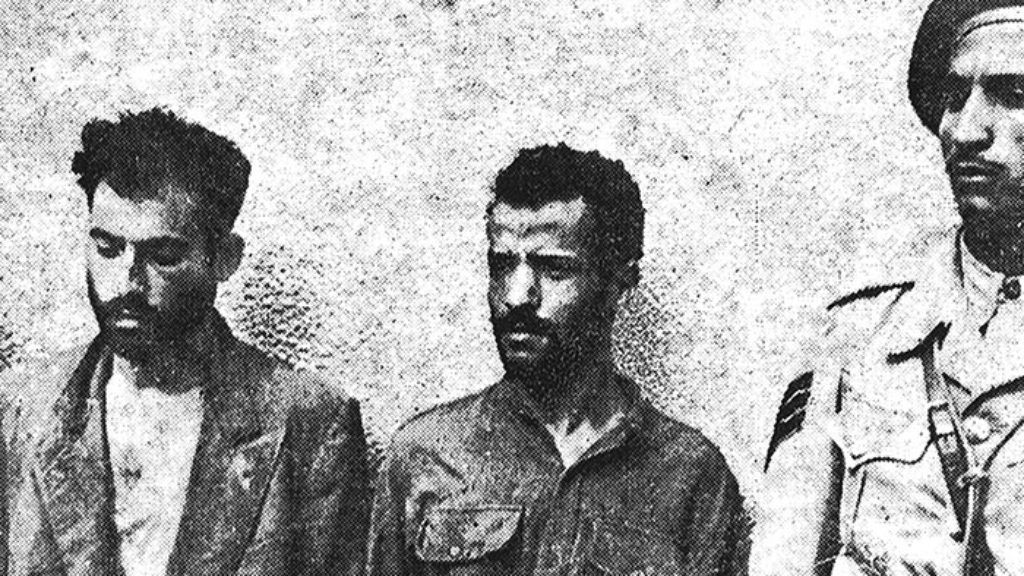
Our Man in Beirut
The Arab Section, suggests Matti Friedman, in one of his latest book's nicer lines, “needed men idealistic enough to risk their lives for free, but deceitful enough to make good spies.”
All the Good Things of Spain
The greatest Hebrew poet gets the English bio he deserves.
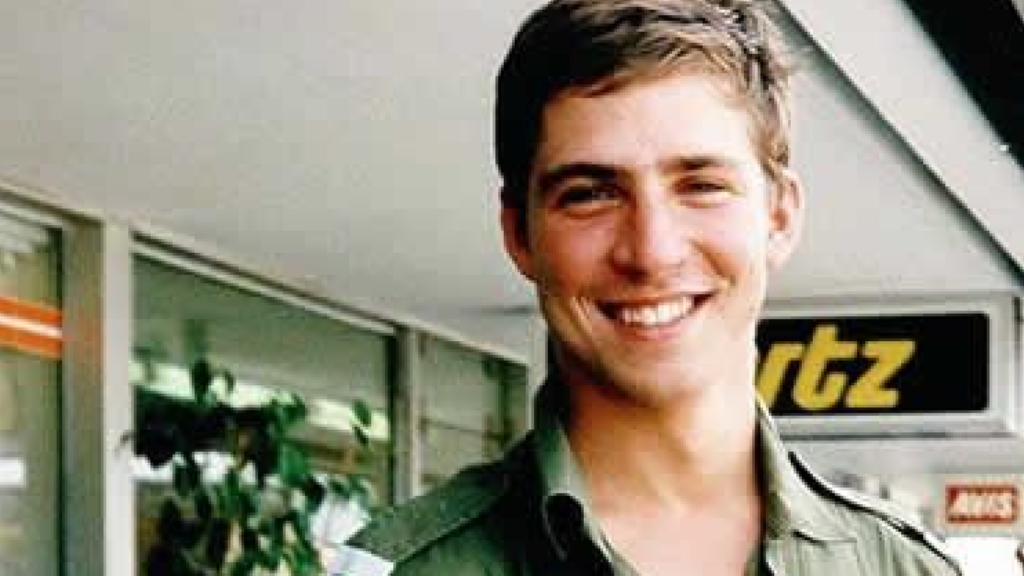
A Lone Soldier
Every year, when Yom HaZikaron, Israel’s memorial day, rolls around, the author thinks of an idealistic college student named Alex Singer who became a lone soldier in the IDF.
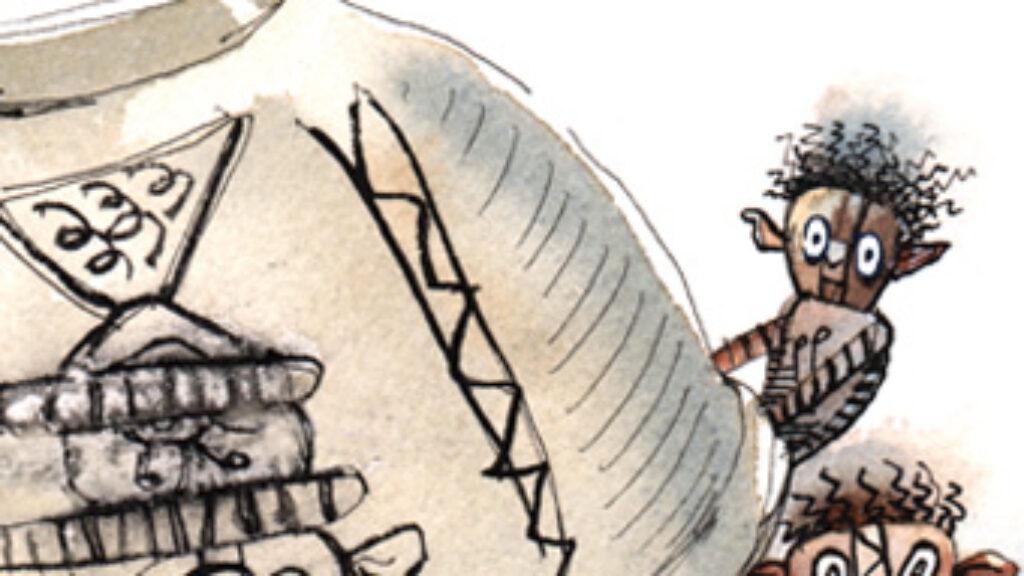
Common Clay
Virtually nothing of Babylonian Jewry of the talmudic period, from the 3rd to the 6th century C.E., has survived beyond the Babylonian Talmud itself to help contextualize or confirm the many things the text tells its readers.
Matthew Anish
Do you think one can fully appreciate the work - or somewhat appreciate in English. My Yiddish - at least so far - is limited to a few phrases. This was a moving piece. I wish someone would translate my poetry into Yiddish!
Matthew Anish
Very moving article. I know very little Yiddish but the English translation helps me appreciate the man's work. Wish someone would translate my poetry into Yiddish!
David Quin
Very moving. The note about Salo Baron’s criticism of the “lachrymose” view of Jewish history reminds me of Irish historian Liam Kennedy complaining about the 'Most Oppressed People Ever' (MOPE) tendency regarding Irish history. The Jewish experience, of course, puts that extreme exaggeration in perspective.
Everyone who thinks of writing about the Shoah should think first about that question: “Vos veystu fun di [[tsapeldike rukzek]]?” “What do you know of the quivering knapsacks?”